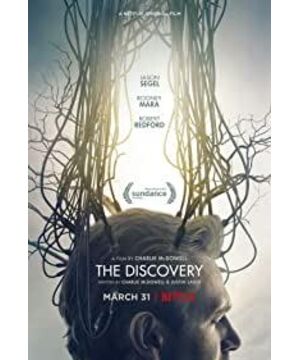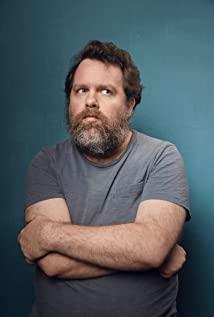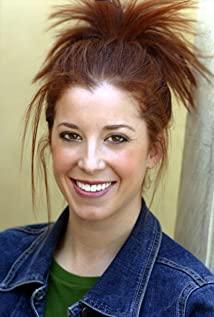Because we cannot know the world after death, we are afraid of death.
Because of this unknown, this uncertainty, we have invented religion, Yama in the East, hell in the West.
They all use reincarnation to define the next life for us, and discipline our present moment, the good will lead you to bliss, and the evil will drag you into extreme suffering.
In any case, our afterlife cannot be related to the present.
We will always forget the present moment. Eastern culture invented Mengpo soup, and immediately forget all the mundane and mundane things after drinking it.
If human beings invent a machine that can explore the afterlife and discover that death is nothing but the demise of the human body, but the spirit can go to the afterlife, how would you think about death? How to choose life and death?
The Discovery, a new film starring Robert Redford and Rooney Mara, hits the mark on this rather grand finale.
Life and death is not only a scientific issue, but also a philosophical issue for human beings with wisdom and a developed spiritual world.
Movies are a philosophical situation.
Philosophy is about contradictions, about ruptures.
Philosophy resolves contradictions and stitches together breaks; in other words, philosophy creates synthesis, creating a new synthesis where there is a break, and building a connection where the original difference is.
Undoubtedly, life and death are the biggest set of contradictions. Between life and death, there is an unconnected gap in today's cultural context.
Life and death can never be connected in this world.
The good news is that cinema, as a philosophical situation, can transcend other art forms, or scientific forms, to create new connections between life and death.
The film itself is a paradox formed around the relationship between existence and appearance. The problem of film is the problem of existence.
The film has both the possibility of replicating reality and the completely fictitious dimension of this replica.
The new film "Discovery" completes an exploration of life and death and the meaning of life in the duplication and fiction of the real world.
From the very beginning of the film, the narrative gap was opened, creating ruptures and contradictions.
Robert plays the scientist who discovers the afterlife. His invention proves that after human death, brain waves are still active, and human beings can leave the present body and go to the world of the next life.
After the discovery was announced, there was a wave of suicides around the world. Celebrities and ordinary people, citizens
and politicians, are busy dying.
The host said that this is the third great discovery after humans discovered the new continent and landed on the moon.
She then asked if you felt responsible for the wave of suicides.
Robert firmly answered, no!
At this moment, after thanking Robert, the photographer committed suicide on the spot.
There was an uproar in the audience, Robert's expression was stiff, and in his eyes, we could see his shaking.
The storyline of the film was then pulled to a ship with only two people. The hero Jason and the heroine Rooney Mara met on the boat.
The story begins here.
It turned out that Jason was Robert's son. He heard that his father had made a new discovery, so he rushed home.
He clearly has a crush on Mara, and in bed she denounces the proliferation of suicides, but in the next scene, Jason encounters Mara who is about to drown in the sea.
He decisively rescued Mara and took her to his father's station.
This private realm is not only a research site where my father discovers the afterlife, but also a sanatorium for those who have attempted suicide.
My father's new hairstyle allows people to see the brainwaves of dead people visually, using a machine. This may prove that people after death go where and what the afterlife looks like.
The people in the sanatorium are waiting for the discovery of the doctor, and they too want to see the afterlife.
However, the male protagonist Jason is disgusted by this. He believes that his father should be responsible for the dead. It is his discovery that led to the emergence of the world's suicide wave.
"Discovery" requires the patience of the audience. All the previous narratives are for the climax. The main control idea of the film is very hidden, and it is quietly sewn until the end.
As the story progresses, we discover that people who die are all because of regret for reality. The next life is their regret medicine. All a group of people choose to die to pursue a new life and make up for their regrets at the moment.
Why did Robert invent this machine? Why did Jason plan this machine.
Because, they have the same heart disease, Robert's wife, Jason's mother, she chose to end her life by suicide.
The reason for her suicide was that Robert was obsessed with scientific research and ignored her existence.
That night, the wife, as usual, wanted attention, but Robert continued to indulge in his research, and the wife calmly went upstairs and drowned herself in the bathtub.
Jason couldn't face it and chose to run away from home, while his father began to explore the discovery of the afterlife.
Robert's purpose is very simple. He can't let go of his wife's suicide. Through the exploration of the afterlife, he hopes to find the whereabouts of his wife after her death. On the one hand, he wants to ask why she chose to leave her to die, and on the other hand, he wants to be reunited with her.
The reason why Mara chose to drown at the seaside was also because of her own carelessness, which caused her son who was playing at the seaside to drown. The pain of losing her son prevented her from getting out of the spiritual predicament of this world. She also hopes to seek change in the next life.
In a new study, they found that the afterlife of the dead is not really so-called new life, but a re-creation of the current world.
They found that the dead researcher hoped to make up for the regret and fault of not seeing the last side of his father through the next life.
As a result, Robert also met his wife through death. In the next life, he put down his work. On that critical night, he chose to have a candlelight dinner with his wife. He stopped his wife who was going upstairs and gave her to her. A long-lost hug.
Robert and others were shocked by the findings.
Because this afterlife is even more terrifying, it announces that human beings can cross the dimension of time, make up for the regrets of the past, and cause changes in the future.
This so-called afterlife will undoubtedly lead more people to choose suicide.
Death thus becomes a reward, a choice that does not matter to the present self.
People may choose to commit suicide because of a little dissatisfaction and a little regret, seeking to change and make up for the moment.
For modern people, we have too many regrets, irreparable family love, lost love, regretful friendship, our short moment, there are countless regrets and untraceable.
When death becomes their hope, self-understanding becomes their new bible.
So, Robert chose to destroy the machine, just as he was about to announce the news that the woman who came to seek refuge shot and killed Mara.
Jason, who fell in love with Mara, changed his rejection attitude and chose to use a machine. After committing suicide, he went to the next life to seek change.
The film "Discovery" buried a huge foreshadowing of the story here. It turned out that it was not the first time that the two met on the cruise ship at the beginning.
Jason and Mara have known each other for a long time. Jason, who fell in love with Mara, went to the next life again and again to change Mara, who wanted to die, but he always failed.
The afterlife is not the future, but the present. It is at the critical node of a certain choice, when we make another choice, our life goes to another possible afterlife world.
For example, when we are faced with two loves, if I choose one of them, it will have a huge impact on the next life.
Our afterlife is our experience of the many parallel worlds of the present day.
Can Jason save Mara in the end? How will their relationship end? Does the afterlife really have the function of turning decay into magic?
"Discovery" uses the method of constructing time to present the divinity or reason in a purely emotional way.
But at the same time, it is also rational. The film tightly locks the master idea in the siege that cherishes the moment.
Don't expect changes in death, but try to experience life as much as possible while alive, so that we have less regrets in family love.
Love is a rebellion against death, love is a miracle in existence, and we can still save love through the events of the moment.
Therefore, to resolve conflicts and make up for the rift between life and death, there may be no need for an afterlife.
Be forceful in the moment, accept the facts, keep your distance from power, and make decisions decisively, so that we can exist in life and perceive the real life.
View more about The Discovery reviews











